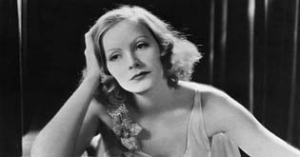Gallery
All Pictures (11)Biography
Greta Garbo was born September 18, 1905, in Stockholm. She started acting as a teenager and has starred in two important European movies by the age of twenty. "Gösta Berling's Saga" (1924), directed by Mauritz Stiller, turned out to be an even bigger success in Germany than in Sweden, where it was produced. In November 1924, Stiller and the German film production company Trianon offered Garbo a part in "Die Odaliske von Smolensk", which was to be shot in Berlin. However, the movie was never finished.
After she had caught the attention of G. W. Pabst, Greta Garbo signed the contract for "Die freudlose Gasse" ("The Joyless Street") in 1925. The movie is based on a novel by Hugo Bettauer and was finished within just five months. In Germany, Bettauer's work was highly controversial. Nazi newspapers called for a ban on his novels, and the writer was murdered during the shooting of the movie. "The Joyless Street" starred Greta Garbo and Asta Nielsen as two daughters from solid middle-class families who are forced into prostitution because of the post-war inflation in Austria. This production remained Garbo's only German movie.
As soon as one day after signing the contract for "The Joyless Street", Greta Garbo signed with the newly-founded Hollywood studio MGM, whose boss Louis B. Mayer had seen the actress in "Gösta Berling's Saga". With her first American movie, Monta Bell's "The Torrent" (1926), Greta Garbo established her career in Hollywood. All her further movies were made at MGM.
From the very beginning, the actress - soon to be called "The Divine" - achieved enormous success with movies such as "The Mysterious Lady" (1926), "The Divine Woman" (1926) and "The Kiss" (1929). She was also able to make a smooth shift from silent to talking pictures. In the 1930s, she continued her success with productions such as "Mata Hari" (1931, directed by George Fitzmaurice), "Grand Hotel" (1932, directed by Edmund Goulding), "Queen Christina" (1933, directed by Rouben Mamoulian), "Anna Karenina" (1935, directed by Clarence Brown), "Camille" (1936, directed by George Cukor), and Ernst Lubitsch's "Ninotchka" (1939).
After finishing the 31st movie of her career ("The Two-Faced Woman"), Garbo retired in 1941 to spend the remainder of her life in seclusion in New York. She died April 15, 1990.
